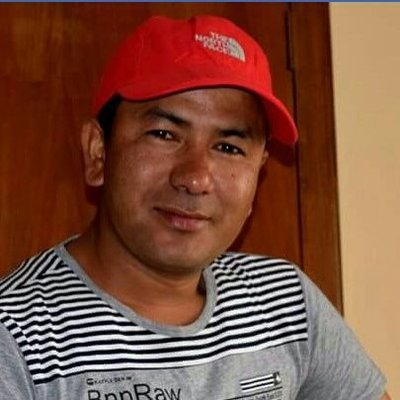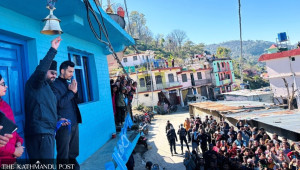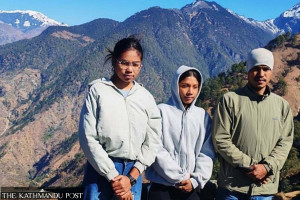Sudurpaschim Province
Saipal residents forced to live with debilitating diseases
Villagers rely on health camps for diagnosis from medical teams and specialist doctors.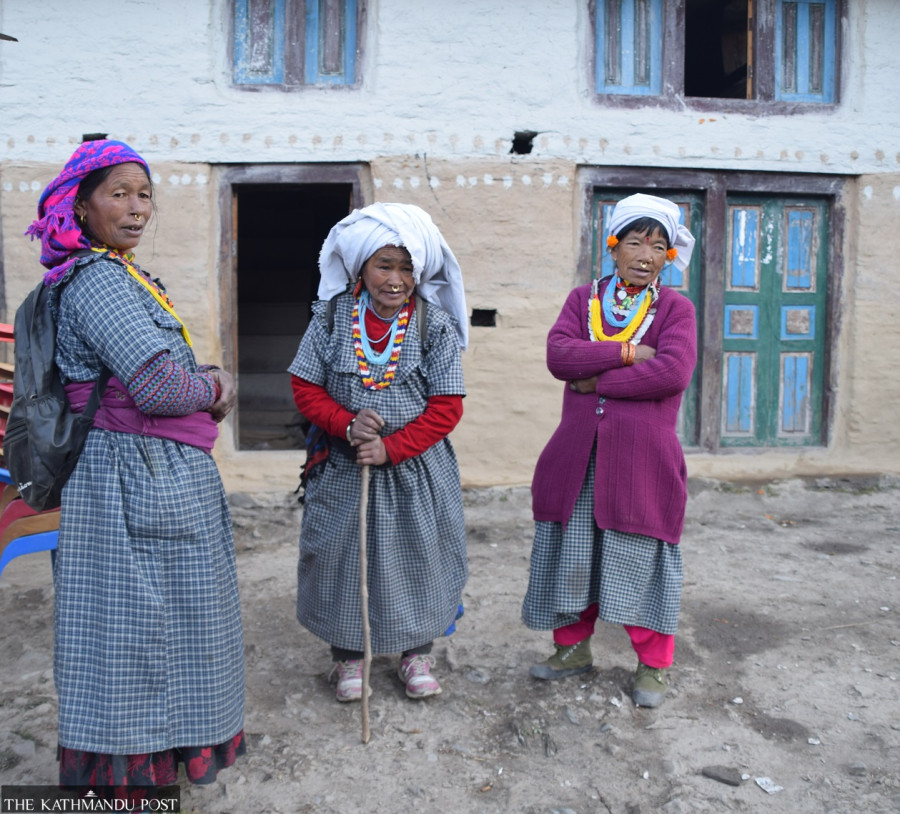
Basant Pratap Singh
Bhaita Bohara has been living with a pain in her limbs for the past 20 years, making her dependent on family members. Her family took her to the district hospital on several occasions when her joint pains became unbearable but she could not get regular treatment or a proper diagnosis.
“Every visit to the district hospital costs money and my treatment became unaffordable,” said Bhaita. “If I had money, I would not have had to live with crippling joint pain all my life. The ailment has affected the quality of my life and at times I have thought of taking my own life to get rid of this debilitating disease.”
After this long ordeal, Bohara finally got the opportunity of a detailed health check from an orthopaedic specialist from Nepalgunj Medical College. Dr Sandip Kandel was available at the health camp in Kanda in Saipal Rural Municipality on December 23-25.
“The swelling in her limbs has left her disabled,” said Kandel. “Preliminary examination hints at problems in her joints but we have decided to send her to Nepalgunj Medical College for proper diagnosis and treatment. We are yet to find out if her treatment is possible after all these years.”
Another 60-year-old woman, Keudi Bohora of Saingau in the rural municipality, also has not been able to determine the cause of her ill health. For the past 25 years, she has been suffering from frequent episodes of nausea, headache, pain in the uterus, swelling in her arms and legs, and severe back pain.
“It all started 25 years ago with occasional headaches and stomach pain. Then the pain progressed to other parts of my body. I don’t remember a time when I was not in pain,” said Keudi. “I often reeled with pain in my entire body and in those times I lost the will to live.”
Keudi visited the Kanda Health Post in Saipal and Community Health Centre in Dhuli several times hoping for a miraculous recovery but she never had the chance to meet a specialist who could diagnose or treat her ailment.
“Every doctor I have met at the local health posts has given me the same medicines. Initially, those medicines provided some relief but these days they don’t work on me. For a lack of money, I never got the chance to go to a big hospital where there are specialist doctors,” said Keudi. “Then I heard about the health camp at Kanda and decided to come see the doctor here.”
Hundreds of Saipal residents reached the health camp in Kanda, located in the centre of Saipal Rural Municipality, seeking treatment for various ailments. Most of the patients were the elderly, women, and children like Bhauta and Keudi.
Some patients were carried on stretchers and horseback from far-flung villages while others walked for a day to reach the health camp for free medical services by specialist doctors and an experienced medical team.
Jala Bohara, a woman from Jyati village who accompanied Keudi to the health camp, said that she walked all the way to the camp in the hope of finding a cure for the pain in her womb and severe toothache. “I have been taking medicines for my condition for the past five years from the local health centres but I am nowhere close to being cured,” said Jala.
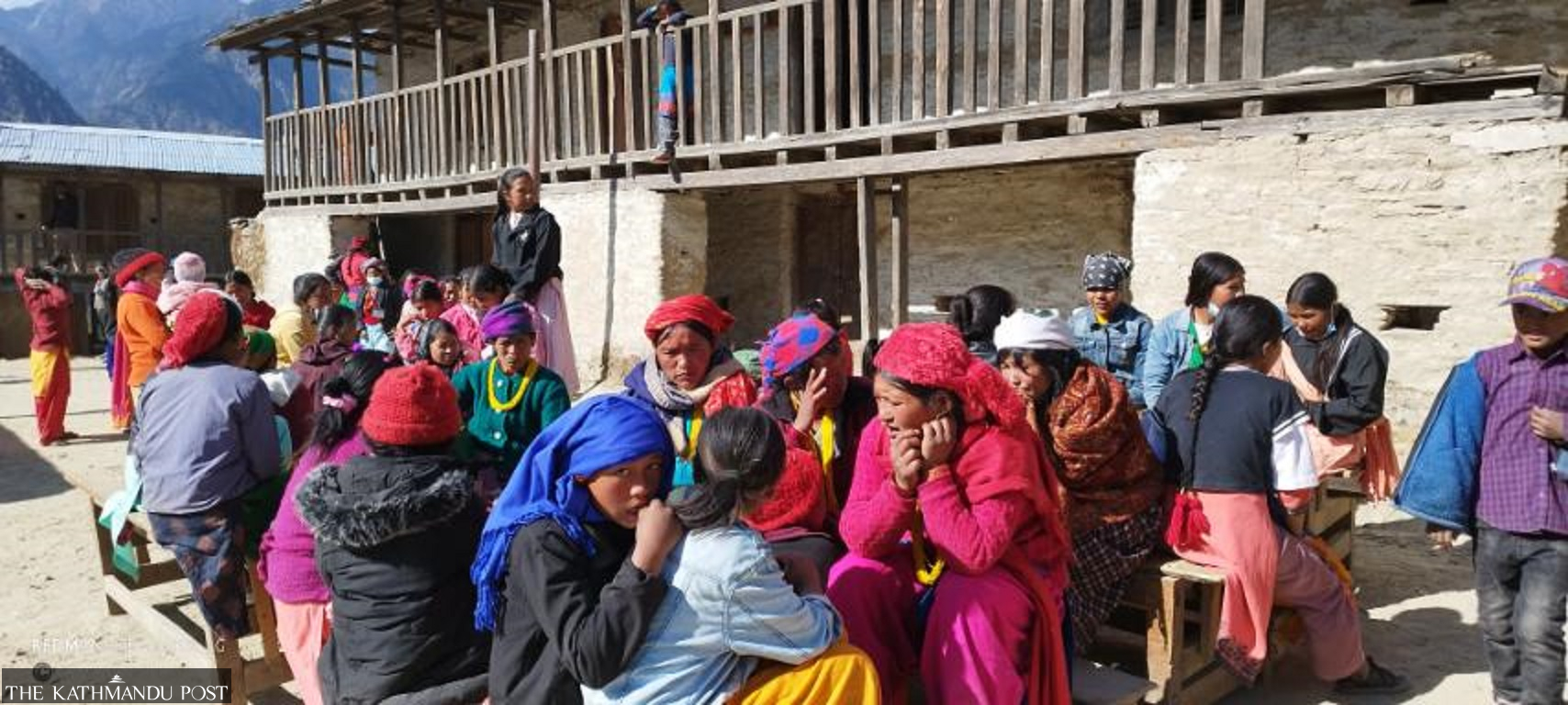
A total of 1,038 people reached the health camp organised at the initiative of President Bidya Devi Bhandari. Guranse Kalyankari Sewa Pratishthan and Rotary Club of Naxal in coordination with Saipal Rural Municipality. The specialist doctors from Nepalgunj Medical College, GMC Hospital in Pokhara, Universal College of Medical Sciences in Bhairahawa and the Bajhang District Hospital provided services in the camp. Among the services provided at the camp are genealogy, paediatric, dental, orthopaedic, general physician, ENT (ear, nose and throat), laboratory and radiology.
The locals of Saipal who rely on such health camps to seek treatment for their ailments say they are deprived of proper treatment in the villages. “I wish such health camps were organised every six months. We cannot go to other places for treatment due to financial problems,” said 79-year-old Dhan Bahadur Bohara. “Health camps should be organised at least twice a year so the poor villagers won’t die for want of treatment.”
According to the doctors, the health condition of the villagers in Saipal, mainly the women and elderly people, is extremely poor. “One third of the women who visited the health camp are living with reproductive issues. Most of the women suffer uterine prolapse and experience pain in reproductive organs,” said Dr Dhundiraj Paudel of Nepalgunj Medical College.
“Elderly people have been suffering from respiratory and orthopaedic problems. Malnutrition among children and women is a major health challenge in Saipal. As many as 15 patients with ENT problems should undergo surgery immediately.”
Saipal Rural Municipality covers around 43 percent of the total area in Bajhang district. As per the report made public by the rural municipality, the total population of the remote rural municipality is just 2,541. It takes up to two days to reach from one ward to another ward. One should walk for four days to reach Chainpur, the district headquarters of Bajhang, from Saipal.
The health condition of the local people in Saipal was exposed during the local level election held on May 13. When the candidates and party leaders reached the villages, the people’s representatives in the area requested they organise a health camp immediately but there were no promises made, says Dolma Tamang, the vice-chairperson of Saipal Rural Municipality.
“We urged the lawmakers, provincial government and the federal government to organise a free health camp in Saipal but to no avail. We finally appealed to the president who listened to us,” said Tamang.
The rural municipality says it cannot provide specialist health services on a regular basis because of its remoteness and lack of resources. “We request the federal government and various institutions to organise a health camp in Saipal at least twice a year,” said Manbir Bohara, the chairman of Saipal Rural Municipality. “The rural municipality cannot manage expenses to airlift medicines, health equipment and health workers. The federal and provincial governments should know about the health situation of the locals of this remote local body.”




 15.12°C Kathmandu
15.12°C Kathmandu